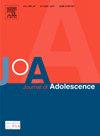A longitudinal investigation of parenting, depression, and counseling use among Asian American adolescents
Abstract
Introduction
Asian American adolescents are equally or more likely to experience depression but less likely to seek treatment for depression than adolescents from other racial and ethnic groups in the US. The current study examined the long-term effects of parental care, parental control, and parental closeness on depression and counseling use among Asian American adolescents.
Methods
Using data from the National Longitudinal Study of Adolescent Health (Add Health), we conducted a cross-lagged path analysis with 270 Asian American adolescents (48.1% female; 51.9% male). The study used data from Waves I, II, and III (1994–2002) with participants' mean ages ranging from 14 to 23.
Results
Findings indicated that the cross-sectional relationships between parenting characteristics and depression were stronger than the longitudinal relationships suggesting that parenting practices may be a stronger proximal, rather than distal, predictor of depression. Specifically, parental closeness was associated with less depression in early and mid-adolescence (age 12–18), but the relationship changed direction in young adulthood (age 18–26). Additionally, a significant interaction suggested that parental care was related to fewer depressive symptoms for those who reported high, compared to low, parental control in mid-adolescence (age 14–18). Furthermore, high parental care was associated with more counseling use at high levels of control. However, high parental care was associated with less counseling use at low levels of parental control in early adolescence.
Conclusion
These results highlight the importance of understanding parenting characteristics using longitudinal designs when examining the development of depression and help-seeking behaviors among Asian American adolescents.

 求助内容:
求助内容: 应助结果提醒方式:
应助结果提醒方式:


